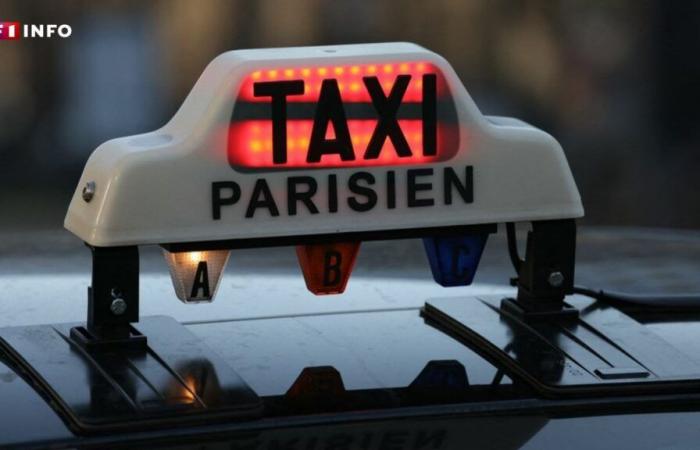Several cities are affected from this Monday by a mobilization of taxis.
In particular, they refuse the agreement which binds them to Health Insurance, a loss of purchasing power according to them.
Follow the full coverage
Strikes, social plans… Is France breaking down?
Farmers, civil servants, public transport…and now taxis. The period is definitely favorable for social mobilizations, and the profession will be no exception. As of Monday, December 2, the largest cities in the country are affected by mobilizations of approved taxis, which threaten to block certain routes in Paris, Lyon and even Marseille.
“The enthusiasm is great, there will be a very big blockage”
Starting this Monday at 5 a.m., “the professional taxi federations announce a mobilization aimed at blocking several entry and exit routes from the Lyon metropolitan area”informs the Rhône prefecture (new window)which calls on motorists to postpone their trips. In Marseille, snail operations should be on the menu, which risks generating “disruptions from early in the morning on the road network”indicates the Bouches-du-Rhône prefecture (new window).
The next day, the taxis should regroup in Paris. And the mobilization promises to be massive. “I don’t think we’ve ever had a demonstration this big”says Bekir, taxi driver and spokesperson for the movement, to TF1info. “We anticipate between 2000 and 5000 taxis from all over France”who hope to regroup near the National Assembly (new window). “The enthusiasm is great. There will be a very big blockage.”
A convention under debate…
At the heart of social conflict? The new agreement currently being negotiated which should link taxis approved by Health Insurance for the transport of patients, the signature of which is expected in December. When a taxi is approved, it can in fact provide medical transport for patients, covered by Social Security. A cost for public accounts that continues to climb.
In 2022, a parliamentary report pointed out “a continuous increase in expenditure on medical transport since the beginning of the 2000s”. In 2020, Health Insurance devoted around 4.3 billion euros to the most expensive modes of transport (notably approved taxis). Almost twice as much as 20 years ago (2.3 billion in 2003). Therefore, in a perilous budgetary context, Health Insurance is tightening the screw. In its new project, it plans to lower the price scale.
…for a loss of purchasing power?
A lower cost for the State… but a loss of purchasing power for drivers. “For short journeys, which constitute a large part of the activities of approved taxis, this new price list results in a significant loss, or even almost zero profitability”estimate approved taxis (new window).
“They want to make taxis work for one euro per kilometer”criticizes Bekir, up to two times cheaper than currently depending on the journey. “Provincial taxis will be in the most difficulty. The loss of income is likely to amount to 40 or 50%”he warns. “However, taxis will not work if they do not make money on a trip.”
-
Read also
2.3 million euros… A taxi driver prosecuted for massive Social Security fraud
He also fears a drop in the quality of service, with journeys which could be shared between several customers, even if it means extending transport time. “Today, drivers pay attention to their customers”he highlights. “They take care of them, put them in the services… The shared taxi is a very bad idea. We don't want to lose this link with the customers.” With these mobilizations, the drivers hope “a moratorium” on the subject.






